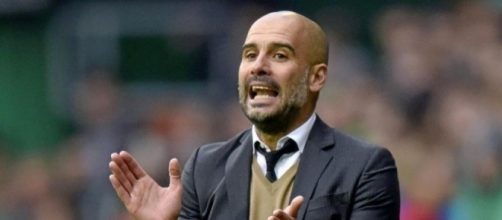When the announcement was made on 1st February 2016, quite a lot of people were surprised that Pep Guardiola would be the new Manchester City manager. Of course, there must have been a lot of influence from the club’s director of football, Txiki Begiristain. The pair spent 4 years together at Barcelona, where they won every trophy possible. Many a fan and journalist believed that Pep was perfect for the red side of Manchester, rather than the blue half. He had only coached at clubs where a rich history had preceded him, with all due respect to Manchester City.
But as they have got probably the most sought after manager in the world, both parties are ready to write their own history.
The Johan Cruyff philosophy
As a player, Guardiola was the “quarterback” to Johan Cruyff’s brilliant side and integral to every aspect of their play. The team had tremendous success, culminating in a European Cup final victory at the holy grail, Wembley Stadium. Cruyff’s influence was not lost on Pep, who said he knew nothing about football before he met the late Dutch icon. During both his managerial roles, it has been clear to everyone that the style of play is pivotal for him. A lot of people generalise and overuse the phrase “Tiki-taka”, but this is a disservice to the genius of the man.
The philosophy is about having the ball to play, rather than playing to keep it. Then end goal is to score, not to have the statistic of 80% possession at the end of the game. This key detail is central to his style and other teams can learn a lot from this, in order to improve the quality of their own play.
Ruthless decisions are his trademark
A lot has been made around the decision to drop Joe Hart from the Manchester City side. This is heightened due to Hart’s status as England’s number one goalkeeper and the general consensus of Joe being a very good goalkeeper. While we do not know whether this is the right decision from Pep, we certainly should not be surprised. During his first year at Barcelona, he made it clear to club legends like Deco and Ronaldinho that they were surplus to requirements.
He wanted players he was familiar with in the B team and was able to bed them in to make arguably the greatest club side the world has ever seen. These types of decisions may help managers realise that they should not pick players on reputation, rather to aid the style of play of the team. Even Sam Allardyce could take a leaf out of Guardiola’s book when picking England squads.
Young players do not just make up the numbers
In his managerial master plan, the youth play an incredibly important part for Pep. This is not just taking academy players that are already at the club, but this is also highlighted in his transfer policy. The buys of John Stones and İlkay Gündoğan show the fact that there are plans for the future at Manchester City.
Preceding managers looked to buy ready made players, who had proven their success at some of the biggest clubs in the world. While no one knows whether the two signings mentioned will be good for Manchester City, the intention is clear from Guardiola. Build for the future rather than look for immediate success, and reap the rewards on the biggest of stages. The trust in young players is something that his players truly values, and youngsters across the country will hope for similar confidence from their coaches.
Whether Pep turns out to be a success at Manchester City is still to be seen, but the signs are ominous for the rest of the Premier League.

